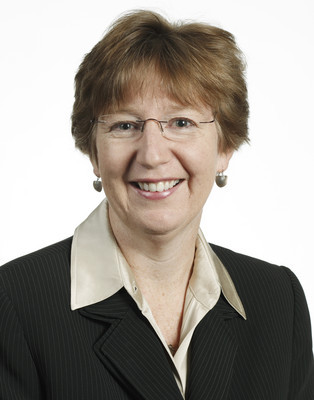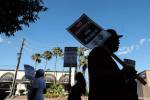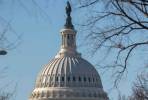Budget bad news delivered
CARSON CITY -- State Budget Director Andrew Clinger told legislators Thursday they face a horrendous choice: Cut salaries by 6 percent and approve other reductions proposed by Gov. Jim Gibbons or lay off 10,000 workers.
Clinger offered that opinion as grim-faced lawmakers for the first time as a group began discussing Gibbons' proposed $6.17 billion budget for the 2009-10 and 2010-11 fiscal years.
That budget is $1.8 billion short of the projected $8 billion that the administration maintains it would need to keep spending at the levels contemplated when the Legislature adjourned in June 2007.
Usually during the budget hearings, legislators frequently joke with and tease each other. But there were no smiles, no levity at all Thursday, a sign of how serious the recession has affected their dispositions and those of others in state government.
"We are in a terrible recession," said Assembly Speaker Barbara Buckley, D-Las Vegas.
Although Democrats voiced plenty of criticism of the Gibbons budget, she and Senate Majority Leader Steven Horsford, D-Las Vegas, stopped short of saying legislators must completely redo it.
"We are trying to understand exactly what the governor is proposing, and we will come out with some of our plans in coming weeks," Horsford said after the meeting. "This is a problem that will require all of us working together."
Democrats control the Assembly by a 28-14 margin and the Senate by a 12-9 edge, and they have the power to make widespread changes to Gibbons' budget plan. The 2009 Legislature will start Feb. 2.
The Democrats have not advocated tax increases to make up for the shortfall, but they plan to review previously granted tax exemptions and abatements.
Clinger said Gibbons intends to keep his promise not to increase taxes unless the public backs the tax increase.
"The governor does not want to put an added burden on taxpayers," he said.
Thursday evening, the governor's office sent a news release that said the state government might receive as much as $1.3 billion in federal economic stimulus funds and that some of the money might be used to reduce cuts in the proposed budget.
In a letter to legislators, Gibbons said money for education, infrastructure and acquisition of federal grants should be appropriated to Nevada in a bill now in the U.S. House.
But details on whether funds could be used to cover the shortfall were not available. If money could be used for that purpose, Gibbons said he would seek to reverse proposed reductions in his budget.
Earlier Thursday, Horsford and Buckley criticized Gibbons' proposals as Clinger spent three hours highlighting where the governor wants to make cuts.
Buckley decried the governor's plan to cut state support for community colleges and universities by 36 percent, $473 million. The cuts at the University of Nevada, Las Vegas and the University of Nevada, Reno would be about 50 percent.
"We are going to have to start on a new (budget) plan," she said about the higher education budget. "This just won't work."
To make up the loss, Buckley said, the state would have to increase tuition by 250 percent. If that happens, middle-class Nevadans would be unable to put their children through school in the state, she said.
The exchange came as a committee of Senate and Assembly members began the first of five days of hearings on Gibbons' budget, which is 9.3 percent smaller than a $6.8 billion plan approved by legislators in June 2007.
Clinger said state tax revenue has dropped by 17 percent over the past two years. Last month, state Archivist Guy Rocha called the recession the worst to hit Nevada since the collapse of mining in the 1880s and 1890s.
Gibbons wants to cut public school spending by 2.6 percent, less than most other departments, but Buckley said that still would drop Nevada to the bottom among the 50 states in state support for education.
She said that Gibbons wants to cut by $57 million a program under which individual schools could apply for money for programs to boost student achievement.
"A school might have used a grant to offer after-school tutoring in reading," Buckley said. "You can't dismantle this in the middle. You can't later pick it up again for a child with deficit reading skills."
"There were a lot of really tough decisions made in this budget," Clinger replied.
Josh Hicks, Gibbons' chief of staff, said many other states face similar budget problems. Some have decided to cut salaries and have entered into negotiations with unions to see whether they will agree to the salary and benefit reductions.
"This is something not unique to Nevada," Hicks said. "If the money is not there, you have to do something about it."
Clinger and Hicks admitted they never spoke with school superintendents, higher education officials and others before they prepared a budget with employee wage and benefit reductions and other outs in state support.
Despite his no-new-taxes pledge, Gibbons does support a 3 percentage point increase in the room tax because voters in Clark and Washoe counties approved that increase in an advisory question in November.
That tax increase would bring in an additional $292 million over the next two years, said Clinger, whose estimate was challenged by Horsford.
Horsford said the tax increase might bring in $150 million less than Clinger's estimates. He requested information on how Clinger came up with his figure and on several other estimates made by the budget director.
"We cannot put a number in the budget that we cannot meet, since it will create a bigger hole," Horsford said.
Buckley, Assemblywoman Debbie Smith, D-Sparks, and others challenged whether Gibbons legally can cut salaries of schoolteachers and others because some have multiyear contracts with Washoe County and other school districts that do not expire until years after June 30.
"Do you feel you are on firm legal footing to unwind contracts?" Buckley asked.
Hicks admitted he had not talked to Washoe County administrators on their teacher contract.
But he said he did check with the Clark County School District. Contracts there expire on June 30, and there would not be a problem implementing the cuts, Hicks said.
Washoe County School District spokesman Steve Mulvenon said his district's contracts with teachers, principals, bus drivers and others do not expire until 2011.
But Mulvenon said the contracts include provisions that salary adjustments will be based on the funds appropriated by the Legislature.
Under Gibbons' proposal, salaries would be cut by 6 percent starting July 1.
Hicks said that if any contracts extend beyond that date, he hoped employee unions would reopen negotiations in light of the state's budget problems.
He said employee unions in other states have taken that step.
A union for Reno employees has reopened its contract to consider reductions after Mayor Bob Cashell warned that workers could be laid off because revenue shortfalls.
"The state is in a very severe emergency," Hicks said.
Contact Capital Bureau Chief Ed Vogel at evogel@reviewjournal.com or 775-687-3901.




























